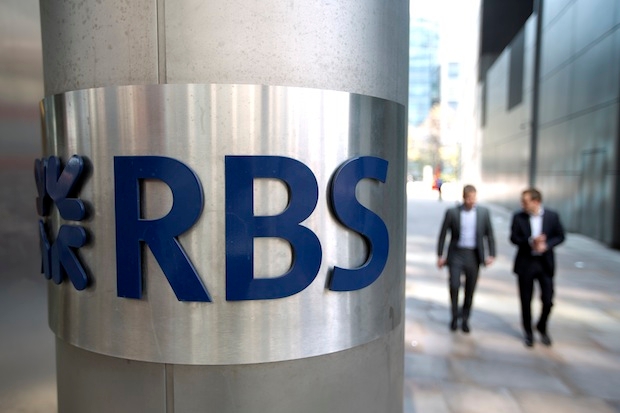Royal Bank of Scotland dominates the business news this morning following its announcement of a £7 billion annual loss.
According to the BBC, the deficit is more than treble 2015’s loss of £2 billion. It is the ninth year in a row RBS has failed to make a profit. Over the next four years, the taxpayer-backed bank plans to slash costs by £2 billion – this will inevitably mean job losses and more branch closures.
Chief executive Ross McEwan told the Today programme that he would not be stepping down and was committed to seeing through the bank’s turnaround. ‘I do a bit of cycling and when you’re out there with the wind in your face its very hard. At some point in time you turn the corner and you have the wind at your back. I sense that time is not far away for this bank.’ John Lewis The Telegraph reports on job cuts by John Lewis which says it will axe 387 staff roles under plans to revamp its cafes and restaurants as well as its curtain and carpet fitting services. The retailer said the plans were part of its strategy to ‘adapt to changing customer needs against a backdrop of structural changes in the retail industry’. However, around 386 new jobs will be created. Housing ThisisMoney reports on the London property market which, according to Hometrack, is losing momentum. The property consultancy says that house prices in the capital are growing at their slowest pace since June 2013. In the year to the end of January, the cost of a home in London increased by 6.4 per cent, with growth expect to hover around zero this year. However, house price growth in cities like Bristol, Manchester and Liverpool is forging ahead.Meanwhile, visits to Rightmove increased by 10 per cent last year as more people used the web to find homes, the property listings website says. The site claimed nearly 1.5 billion visits during 2016, with movers spending nearly a billion minutes each month looking for properties.
In other housing news, a quarter of neighbourhoods in England and Wales were off-limits to many prospective homeowners last year because average income in these areas was below the level needed to buy an entry-level property. According to analysis of ONS data, the cost of an entry-level property on average across England and Wales has increased by almost 20 per cent in the last decade, to £140,000. For new properties, the price was nearly £180,000. The data suggests that home-ownership prospects varied across the country. Those in England who succeeded in making it onto the property ladder in 2016 paid on average more than £198,000. Would-be homeowners in London faced more of an uphill climb, with the average value paid by first-time buyers over £423,000.Retailers
The Times reports that ‘retailers are raising their prices at the fastest rate in six years and cutting staff in preparation for a slowdown on the high street in the wake of Brexit. The CBI’s monthly distributive trades survey found firms at their most pessimistic in nearly five years. They expect business to deteriorate over the next three months for the first time since 2012.’ Energy The BBC reports that ‘interventions in the energy market by successive governments have pushed up prices, but not secured supplies’. That’s according to a House of Lords committee which said the interventions have led to an opaque, complicated and uncompetitive market. MotoristsThere’s news about plans to curb spiralling compensation payouts on the roads. The Prisons and Courts Bill includes plans to cap whiplash compensation payouts, and raising small claims limit for road traffic accident claims.
James Dalton, director of general insurance policy at the Association of British Insurers, said: ‘The reforms to whiplash claims set out in the Bill cannot come soon enough. For far too long claimant lawyers have been defending a system riddled with exaggerated and fraudulent claims because they have been profiting handsomely from it. The gravy train must stop. Motorists know that the UK’s roads have been getting ever safer, so why have whiplash style claims been rising? People want an insurance claims system that provides compensation and support to those who genuinely need it. What they don’t want is to be plagued by spam calls and texts from ambulance chasers, whilst personal injury lawyers continue to profit from a broken system in urgent need of reform.’
Atom Bank ThisisMoney reports on the surprise launch of a new current account.Beating the current top-paying one-year bond by 0.4 percentage points, Atom Bank’s new one-year account paying 2 per cent currently beats inflation. It is the first one-year deal to pay 2 per cent since April 2016, but it remains to be seen whether it will lead to a revival in the deposit account market.






Comments